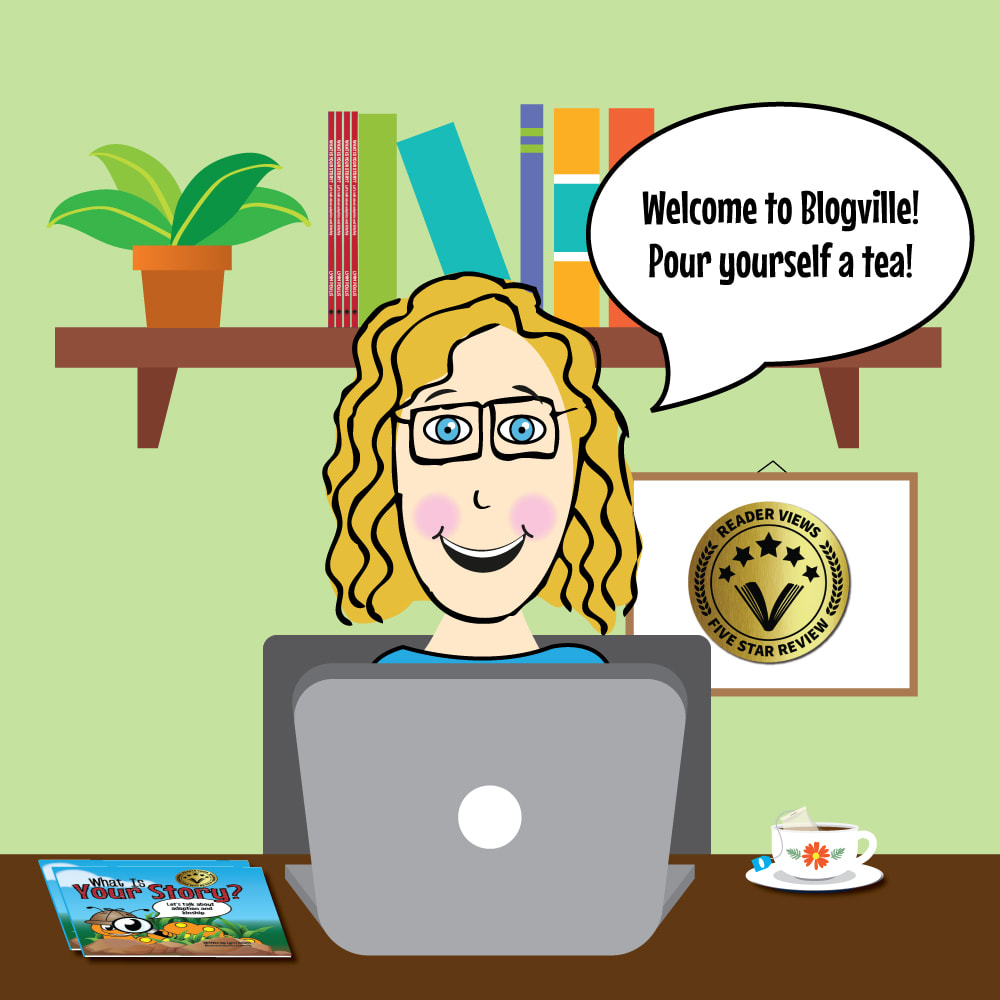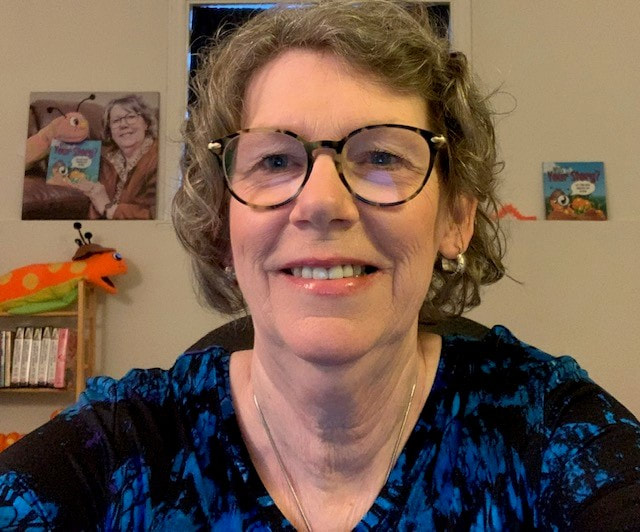|
Hello Blogville friends. Welcome back. Today’s tea is a simple English Breakfast blend that I enjoy. I hope it will offer me strength as I write this particular blog.
You know how, when you go to a fair where there are carnival rides, you will usually hear parents explaining to their children that a certain ride might upset their stomach, or that the child is too tall or too short for that particular ride, or even that the ride might scare them (the child, not the parent that is). Usually you will hear sound advice from the parents. However, a bit later as you continue walking around you might hear those same children screaming their loudest, some even throwing up their popcorn and cotton candy. You know what you don’t hear the parents yelling? Things like, “I told you so!” “Well now you just have to deal with it.” “Suck it up!” What you usually hear instead are things like, “You got this!” “Don’t worry, its almost over.” “I’m waiting right here.” “I’ll be right here when the ride stops.” Think for a moment about the child who was put on the ride, not knowing what was coming? Think about the parents who had faith that the child, though scared, would not only survive the ride, but love it! That’s kind of like adoption. Children who are old enough to agree to an adoption plan do not really know what the ride will be like but, initially, it sure looks like fun! Adoption placement can sometimes be like getting off of the ‘tilt-a-whirl’ and then onto the slow ride up to the top of the roller coaster. Sometimes their new parents have even gotten on the ride with them and together they all experience the curves, drops, turns, and unexpected feelings that accompany the ride. Riding that roller coaster can be a traumatic event for the new parents but also keep in mind that the children had the tilt-a-whirl ride before they even met their new parents, making that roller coaster ride even more traumatic for them. If, at those same fair grounds you saw a small child who was clearly lost, what would you notice? The child might stand still, looking around and around, or they may walk slowly while examining every adult nearby looking hopefully at each of the adult faces, they may even just stand there with their fear evident on their face, or you may see the child running and crying while looking all around the fair ground. Every child’s fear and sense of loss looks different. Even a group of siblings lost together might look quite different from each other as they try to manage their fear. When a stranger stops to help them their fear is often heightened because they know they should not go with them but, at the same time, do not know how to find the adult they came with. Finally, they may have to put their trauma aside, take a leap of faith, and trust the adult system that has already let them down so often. Parenting is a ride every time. New birth parents often find people expecting that they know everything there is to know about their baby and how to parent their new baby. After all, caring for their new baby is supposed to come naturally to them right? What a set up. I don’t care how old or young you are when someone hands you your new baby, the very baby that you have waited nine long months to meet, and you realize that all that actually follows out of the birth canal is the placenta, not a baby care guide, it is terrifying. Society looks at these new parents, smile smugly at each other and say, ‘oh, they’ll learn’ and then, ‘we can guide them’ and usually (though not always) a support system will wrap around the new family, complete with information and support. New adoptive parents often find people expect that adopted children do actually come with a guidebook. Often friends and relatives expect and hope that the adoptive parents will refer to the guidebook because they have never adopted and would not know what to tell them. They think that the workers and foster parents or kinship parents have told the new parents all there is to know about parenting their new child. Society seems to look at these new parents, smile smugly at each other and say, ‘oh, they asked for it’ or ‘we warned them’, and usually (though not always) disappear, and taking their support with them. Sadly, these are often the same people who gave references and a pledge of support during the home study process. How a child arrives in a family seems to matter to our society and adoptive parents are either saints or fools in the court of public opinion. I will add that birth parents of children with special needs often experience a similar judgement from the court of public opinion, assuming that the birth parents must have been careless in some way for their child to be born with extra needs. Often in these circumstances society also disappears, taking their support with them. Once, when I was young, I remember the midway was coming to town so I asked my one friend if she wanted to come to it with me. She said her mother would not let her go because the last time she went on the Ferris wheel she threw up on someone on the ground. I tried to tell her we could simply avoid the Ferris wheel but her mother was adamant, based on that experience, that she could not go. Instead, I asked another friend if she wanted to come with me and she said she wanted to but her mother would not let her. She explained that the last time she had gone to the midway someone on the Ferris wheel threw up all over her. I found myself making a terrible connection. Both of my friends had experienced the same event in very different ways but with similar outcomes. Reminds me of parenting in a way, similar events, different and often traumatic experiences that result in families needing support! When we talk about adoption disruption I find pretty distinct pros and cons in the court of public opinion. People who have heard about adoptive parents returning a child to the agency and are either smug (I knew they could not do it) or in their view of being supportive, blame the agency for simply putting a ‘bad child’ with them (without any preparation). Typically, but not always, we hear professionals wondering what more they could have done to support the placement. However, rarely do we hear society ask that same question. So what can you, a member of society, do to support adoption and adoptive parents? You can be there. Ask the adoptive family what they need, BUT, be prepared to follow through. If you are not comfortable offering to look after the child while the parents get things done or take a break, offer instead to do some loads of laundry, clean out their fridge, mow the lawn, prepare school lunches, or any of a million household tasks that need to be done while the parents are trying to manage the child’s behaviour. Order food and have it delivered to the family, or, more affordably, drop off a meal. If there are other children in the home, take them to the park, or to a movie when things are rocking and rolling in the home. You know, we offer more support to people who are grieving, than we do to prevent an adoption disruption; which also involves significant loss. Think of struggling adoptive families as grieving, the child is grieving the loss of their birth family and foster or kinship families, even sometimes grieving losing the support of their workers. These often traumatized children must grieve what they have lost before they can accept what they now have. The adoptive families are often also grieving the child they knew pre-placement and when initially placed (often known as the honeymoon) and, in the case of infertility, the adoptive parents may be grieving the concept of having a birth child or children. Society often does not recognize or acknowledge this grief. When we hear of a family’s loss, we often send flowers as an expression of support. We do this mostly because we do not know what else to do. Though flowers are appreciated, I honestly believe that the actions of person who stops by with a giant hug (and maybe a coffee or tea), the person who cares for the family’s small children during the wake, and/or the person who quietly cleans up the kitchen, mean more to a grieving family because they offered actual, tangible, help. Often it was help that they didn’t even know they needed, or that they could not have identified they even needed it. Not all adoption matches will be successful, just like not all pregnancies make it to term. Sadly, disruptions often happen when the placement lacked an appropriate assessment in the first place, or the placement date may have been rushed, or other ‘system’ issues. To me, adoption disruptions that occur due to the lack of friends’, family members’, and/or society’s support are the saddest stories of all. So, if you know an adopting family, roll up your sleeves, open your heart, and be there to say, “You Got This!”, “How can I help?” Remember, your comments are welcome and encouraged, if not here then please send me an email at [email protected] so I can read your thoughts. Take care Blogville friends.
0 Comments
Your comment will be posted after it is approved.
Leave a Reply. |
Read More
July 2024
Categories |



 RSS Feed
RSS Feed